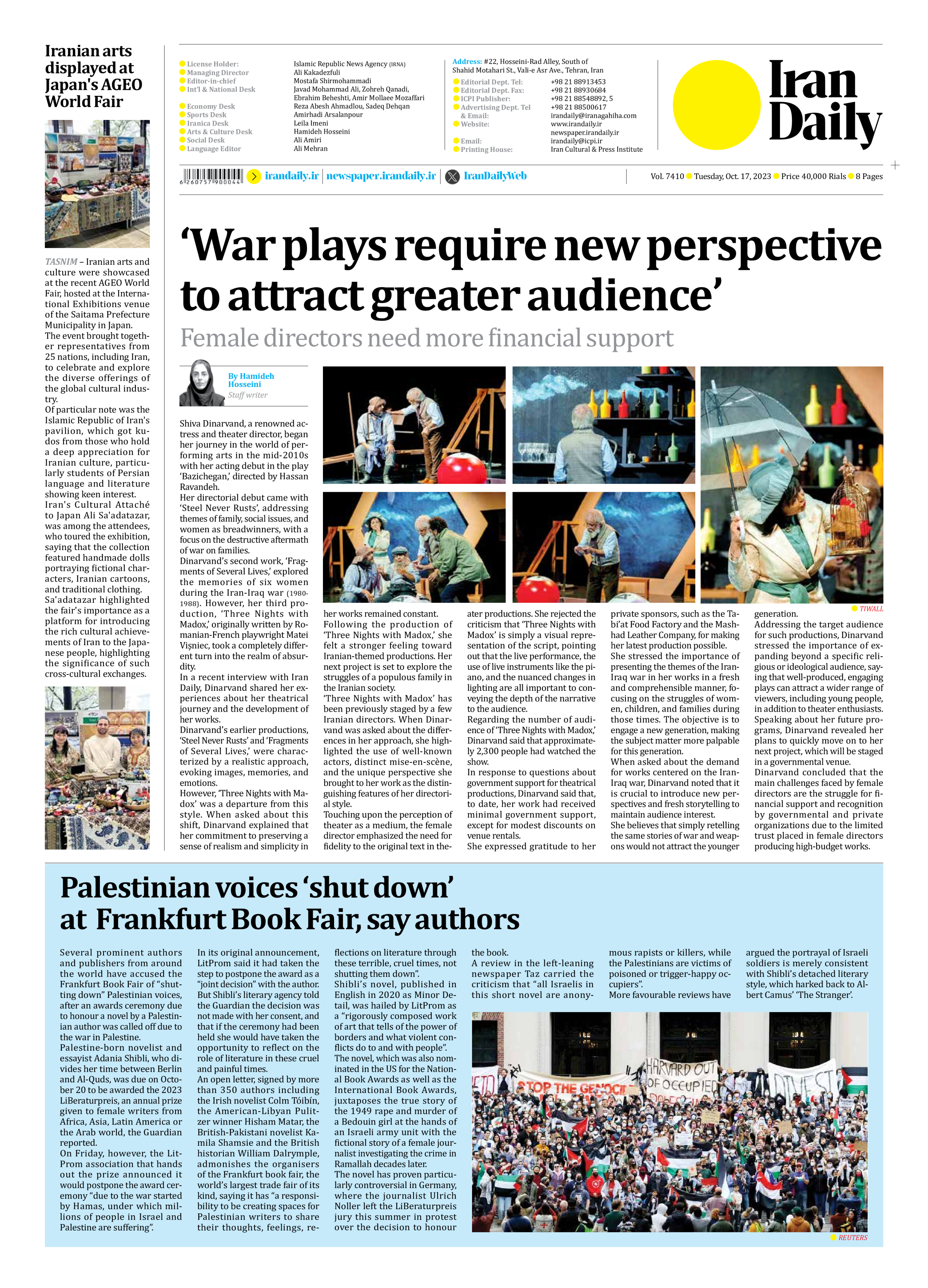
Palestinian voices ‘shut down’ at Frankfurt Book Fair, say authors
Several prominent authors and publishers from around the world have accused the Frankfurt Book Fair of “shutting down” Palestinian voices, after an awards ceremony due to honour a novel by a Palestinian author was called off due to the war in Palestine.
Palestine-born novelist and essayist Adania Shibli, who divides her time between Berlin and Al-Quds, was due on October 20 to be awarded the 2023 LiBeraturpreis, an annual prize given to female writers from Africa, Asia, Latin America or the Arab world, the Guardian reported.
On Friday, however, the LitProm association that hands out the prize announced it would postpone the award ceremony “due to the war started by Hamas, under which millions of people in Israel and Palestine are suffering”.
In its original announcement, LitProm said it had taken the step to postpone the award as a “joint decision” with the author. But Shibli’s literary agency told the Guardian the decision was not made with her consent, and that if the ceremony had been held she would have taken the opportunity to reflect on the role of literature in these cruel and painful times.
An open letter, signed by more than 350 authors including the Irish novelist Colm Tóibín, the American-Libyan Pulitzer winner Hisham Matar, the British-Pakistani novelist Kamila Shamsie and the British historian William Dalrymple, admonishes the organisers of the Frankfurt book fair, the world’s largest trade fair of its kind, saying it has “a responsibility to be creating spaces for Palestinian writers to share their thoughts, feelings, reflections on literature through these terrible, cruel times, not shutting them down”.
Shibli’s novel, published in English in 2020 as Minor Detail, was hailed by LitProm as a “rigorously composed work of art that tells of the power of borders and what violent conflicts do to and with people”.
The novel, which was also nominated in the US for the National Book Awards as well as the International Book Awards, juxtaposes the true story of the 1949 rape and murder of a Bedouin girl at the hands of an Israeli army unit with the fictional story of a female journalist investigating the crime in Ramallah decades later.
The novel has proven particularly controversial in Germany, where the journalist Ulrich Noller left the LiBeraturpreis jury this summer in protest over the decision to honour the book.
A review in the left-leaning newspaper Taz carried the criticism that “all Israelis in this short novel are anonymous rapists or killers, while the Palestinians are victims of poisoned or trigger-happy occupiers”.
More favourable reviews have argued the portrayal of Israeli soldiers is merely consistent with Shibli’s detached literary style, which harked back to Albert Camus’ ‘The Stranger’.







